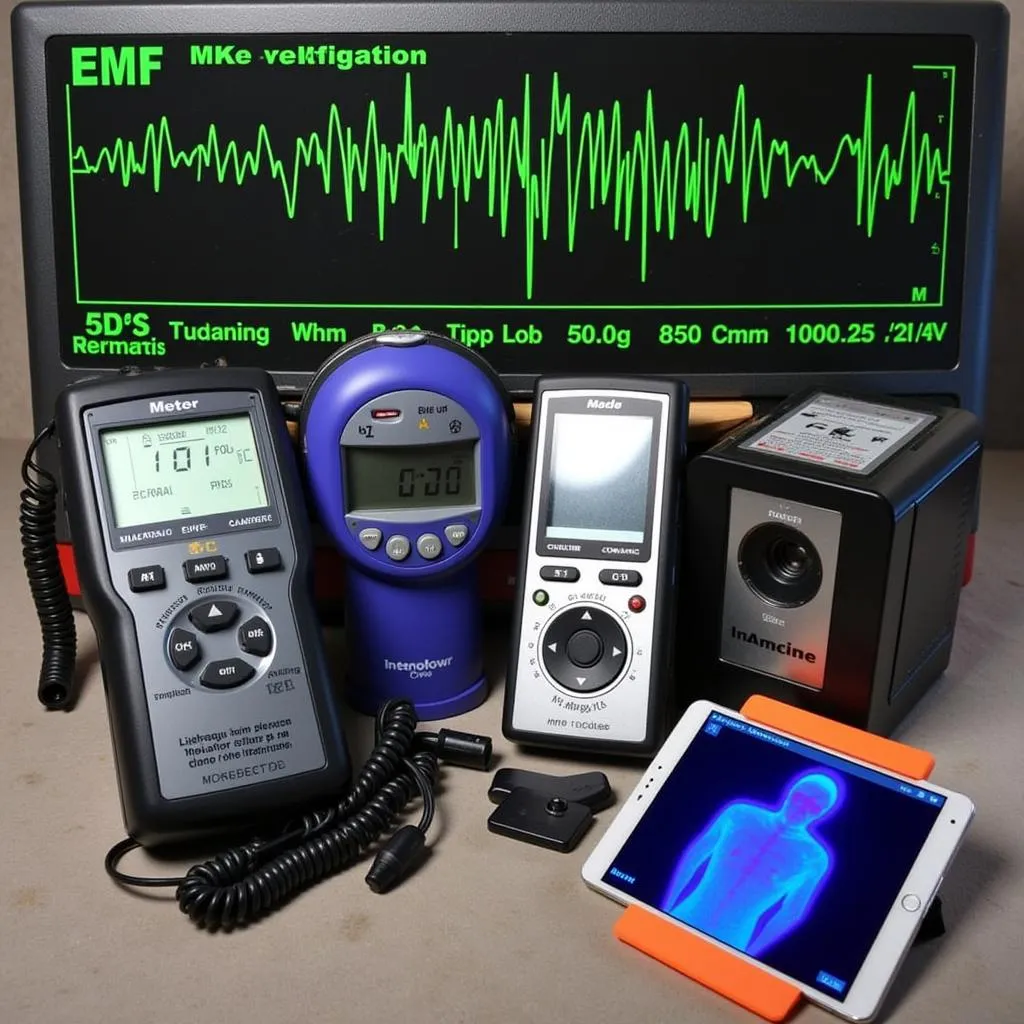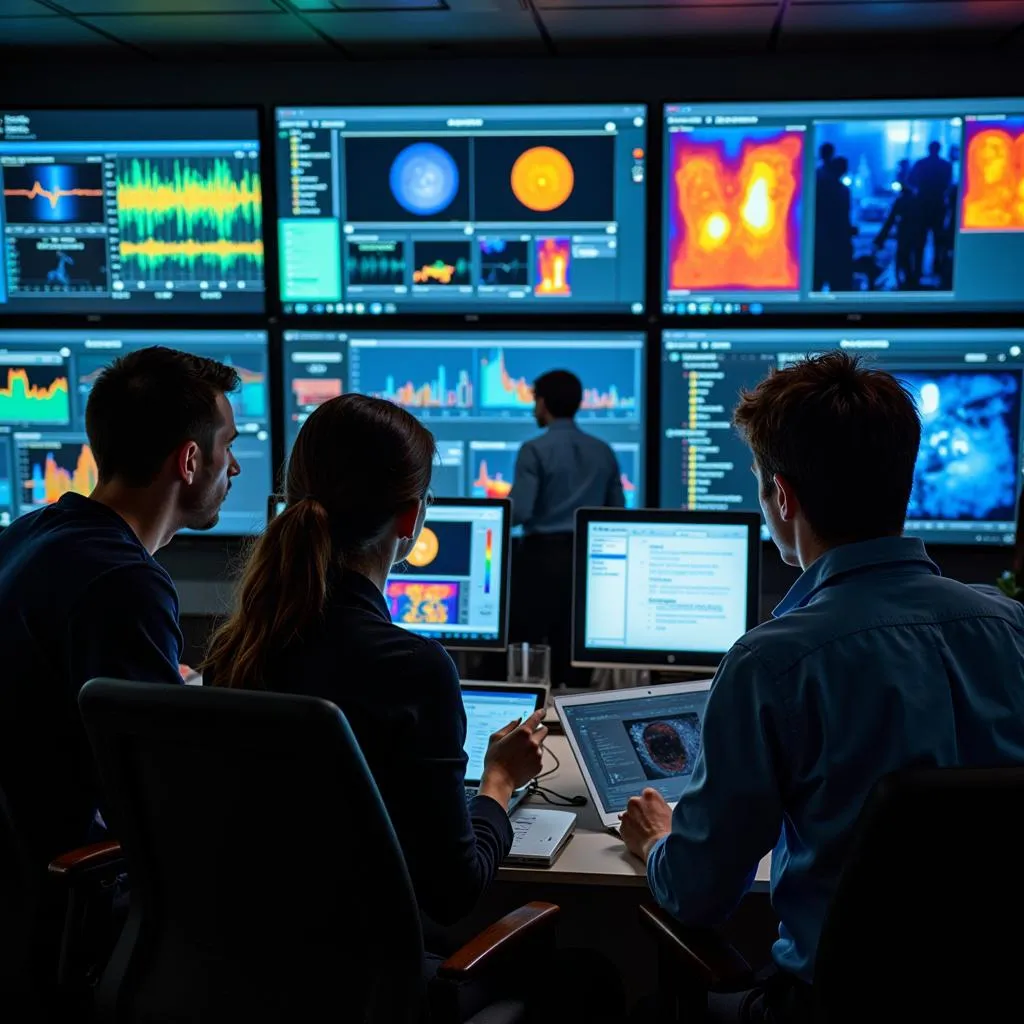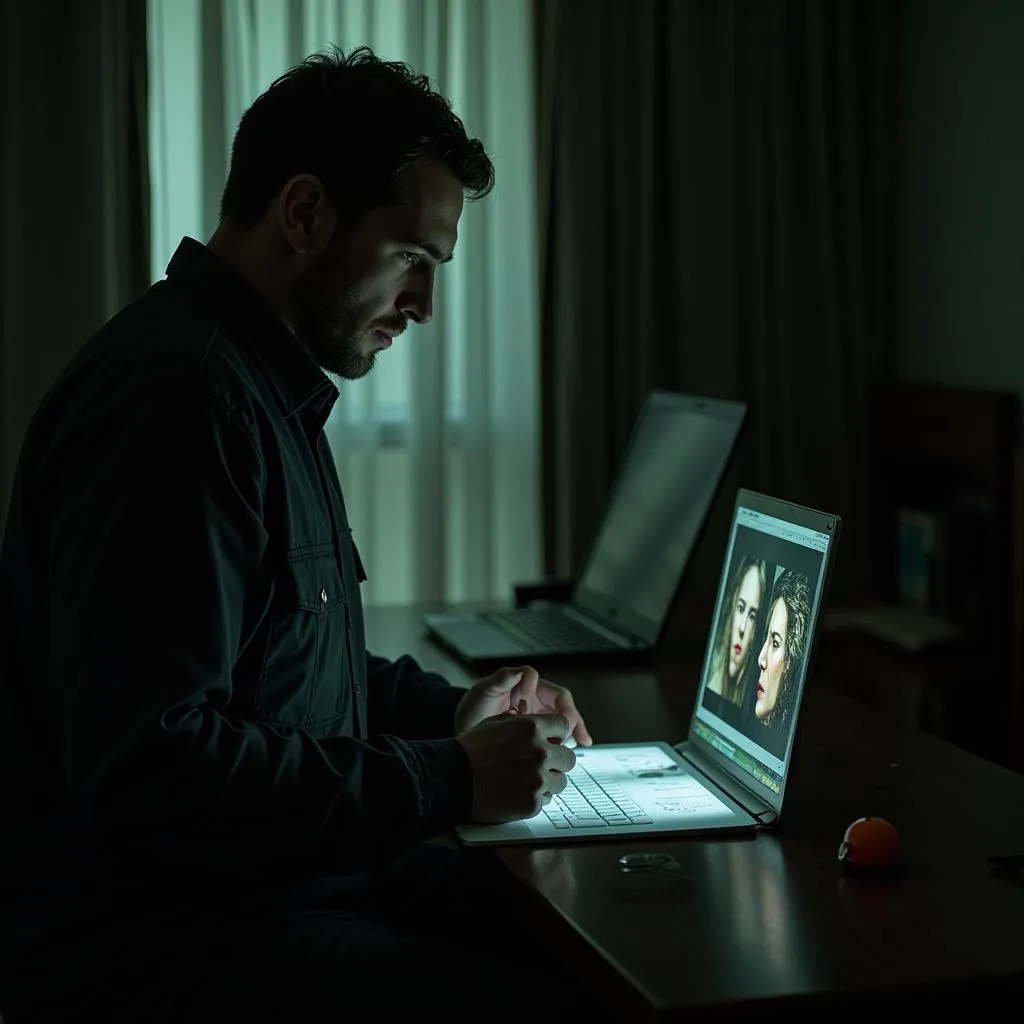The pursuit of understanding the unknown has captivated humanity since the dawn of time. While traditional science explores the natural world, “Studies And Research” in the paranormal realm seek to shed light on phenomena that defy conventional explanation. This exploration into the mysteries beyond our current understanding takes us on a journey through eyewitness accounts, historical records, and scientific investigations that challenge our perception of reality.
The Methodology Behind the Mystical: How is Paranormal Research Conducted?
Investigating claims of the paranormal requires a multidisciplinary approach, drawing upon tools and techniques from various fields like psychology, physics, and even folklore. Unlike controlled laboratory settings, paranormal research often grapples with subjective experiences and unpredictable phenomena.
 Paranormal investigation tools laid out on a table
Paranormal investigation tools laid out on a table
Some common methods employed in this field include:
- Eyewitness Interviews: Gathering firsthand accounts from individuals claiming to have experienced paranormal activity. Researchers carefully analyze these reports for consistency, details, and potential psychological factors.
- Field Investigations: Visiting locations purported to be haunted or where unusual events have been reported. Investigators use various instruments to detect and document any anomalous readings or occurrences.
- Experimental Research: Attempting to recreate paranormal phenomena under controlled conditions. This can involve studying mediums, psychic abilities, or attempting to influence random event generators (REGs).
The Quest for Evidence: Analyzing Data in Paranormal Studies
One of the significant challenges in paranormal research lies in the interpretation of data. Since many reported experiences are subjective and difficult to replicate, separating genuine anomalies from misinterpretations or hoaxes requires rigorous analysis.
 A team of paranormal researchers huddled over laptops and documents
A team of paranormal researchers huddled over laptops and documents
Researchers often rely on:
- Statistical Analysis: Applying statistical methods to large datasets of paranormal reports to identify patterns and trends.
- Pattern Recognition: Searching for recurring themes or similarities in eyewitness accounts, historical records, or experimental results.
- Cross-Referencing: Comparing findings from different investigations, disciplines, or historical periods to corroborate evidence.
Navigating Skepticism and Belief in Paranormal Research
The field of paranormal studies inevitably attracts both fervent believers and staunch skeptics. It’s crucial to approach this area of inquiry with a balanced perspective, embracing critical thinking while remaining open to the possibility of phenomena beyond our current understanding.
“Paranormal research thrives on healthy skepticism,” says Dr. Emily Carter, a leading researcher in parapsychology. “It’s not about blindly accepting every claim but rather applying rigorous scientific methods to explore the unexplained.”
 A paranormal researcher with a magnifying glass examining a photograph
A paranormal researcher with a magnifying glass examining a photograph
Further Exploration: Resources for Paranormal Enthusiasts
For those intrigued by the world of paranormal studies and research, numerous resources offer further exploration:
- Paid Research Studies Miami: Discover opportunities to participate in paid research studies related to paranormal phenomena.
- Qualitative Research Reports in Communication: Explore qualitative research findings on the communication aspects of paranormal experiences.
- Three Basic Methods of Ecological Research: Learn about ecological research methods that can be applied to paranormal investigations.
Conclusion: The Ongoing Quest for Understanding
While definitive answers in the paranormal realm remain elusive, “studies and research” continue to push the boundaries of our knowledge. By combining scientific rigor with an open mind, we can delve deeper into the mysteries of the unknown and perhaps expand our understanding of the universe and our place within it.
FAQ (Frequently Asked Questions)
-
What are some common misconceptions about paranormal research?
Many people believe paranormal investigators are just “ghost hunters.” While investigating hauntings is one aspect, the field encompasses a much broader range of phenomena, including ESP, psychokinesis, and cryptozoology. -
Is paranormal research considered a legitimate science?
This is a topic of ongoing debate. While some aspects of paranormal research employ scientific methodologies, the difficulty in replicating findings and the subjective nature of many experiences make it challenging to meet the strict criteria of mainstream science. -
What are some of the most compelling pieces of evidence in paranormal research?
While many reported cases remain unexplained, some of the most compelling evidence comes from controlled experiments in areas like remote viewing and psychokinesis, where statistically significant results have been observed. -
How can I get involved in paranormal research?
Numerous local and online paranormal societies welcome newcomers and offer opportunities to participate in investigations or learn more about the field. -
What should I do if I think I’ve experienced something paranormal?
It’s important to document your experience in as much detail as possible. Consider contacting a reputable Paranormal Research group for advice and potential investigation.
Need Assistance?
Contact our 24/7 support team:
- Phone: 0904826292
- Email: research@gmail.com
- Address: No. 31, Alley 142/7, P. Phú Viên, Bồ Đề, Long Biên, Hà Nội, Việt Nam.